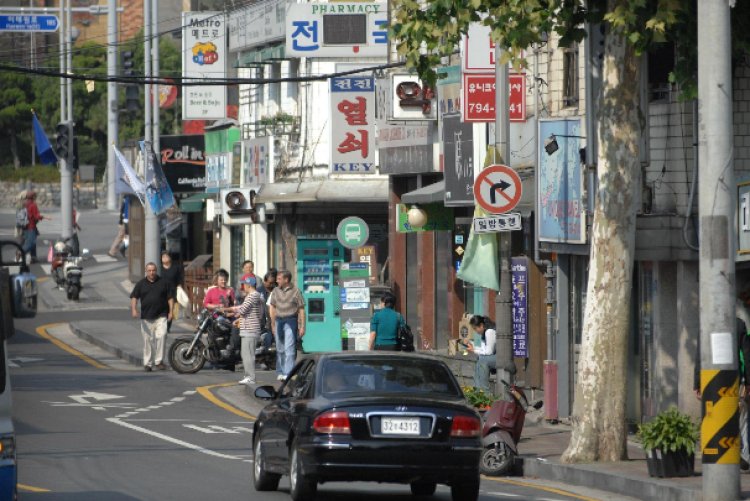South Korean Human Rights Commission Chairman Declares State Responsibility in the Itaewon Tragedy

Jasmine Velasquez
East Asia and Human Rights Researcher
Global Human Rights Defence
On the evening of Halloween, Itaewon was crowded with thousands of people. This mass number of people was controlled by only 137 police officers on the ground. At around 10 PM the large crowds began to be pushed against one another in a narrow alleyway, leading to a crowd crush that led to many deaths. In total, the casualties totaled 347 people, including 156 deaths and 191 injuries. The deadly crushing and the events of the night were quickly and vastly circulated on social media.
On November 4th 2022, the chairman of the National Human Rights Commission of Korea, Song Doo-hwan, said in a statement that the state of South Korea should acknowledge responsibility for the tragedy, and implement follow-up measures swiftly. He stated that the lives and safety of the people are the nation's first responsibility, and it should refrain from blaming the victims for the tragedy they faced. He continued, saying that the Itaewon disaster reveals flaws in the disaster safety management and prevention systems and that it is vital to recognize state responsibility for failing to properly respond, predict, prevent, and protect the citizens. Chairman Song also strongly urged against the distribution of photos and videos of victims without properly concealing their identities, and victim-blaming, online.
The Constitution of the Republic of Korea stipulates the obligation of the state to guarantee the basic human rights of the people, such as human dignity and the right to life, prevent disasters, and protect the people from dangers. These rights and obligations are also present in international human rights laws and norms. Article 2 of the Universal Declaration of Human Rights concerns the right to life. This stipulates that governments should take appropriate measures to safeguard life by making laws to protect their citizens and, in some circumstances, by taking steps to protect citizens if their lives are at risk. This right to life is also protected under the International Covenant on Civil and Political Rights (ICCPR) under Article 6. This is applicable as South Korea ratified the ICCPR in 1990.
Therefore, it can be discerned that there was a failure to protect these rights above, by the South Korean national government, in the Itaewon disaster.
In looking forward, Chairman Song stated that the National Human Rights Commission would continue to examine the process as it unfolds, including the fact-finding mission and the government’s follow-up measures for the victims and their families, and will provide recommendations for systemic improvement moving forward.
Sources and further reading:
Kim Yeon-Jung, “[이태원 참사] 인권위 국감서 '사고 사망자' 표현 공방(종합)” (연합뉴스 November 2, 2022) <https://www.yna.co.kr/view/AKR20221102076051001?input=1195m>; accessed November 4, 2022
Newsis, “인권위원장 ‘이태원 참사 국가책임 인정하고 후속조치 해야’” (NEWSIS November 4, 2022) <https://newsis.com/view/?id=NISX20221104_0002073490&cID=10201&pID=10200>; accessed November 4, 2022
Newspim, “[이태원 참사] 인권위원장 ‘국민의 생명 지키지 못한 국가...책임 가볍지 않아’” (NEWSPIM November 4, 2022) <https://www.newspim.com/news/view/20221104000672> accessed November 4, 2022
Park Shin-Won, “인권위원장 '정부, 이태원 참사 철저한 진상규명 필요'” (서울경제 November 4, 2022) <https://www.sedaily.com/NewsView/26DHUL77PD> accessed November 4, 2022
“Ratification Status for CCPR - International Covenant on Civil and Political Rights” (UN Human Rights Treaty Bodies) <https://tbinternet.ohchr.org/_layouts/15/TreatyBodyExternal/Treaty.aspx?Treaty=CCPR&Lang=en> accessed November 4, 2022

































